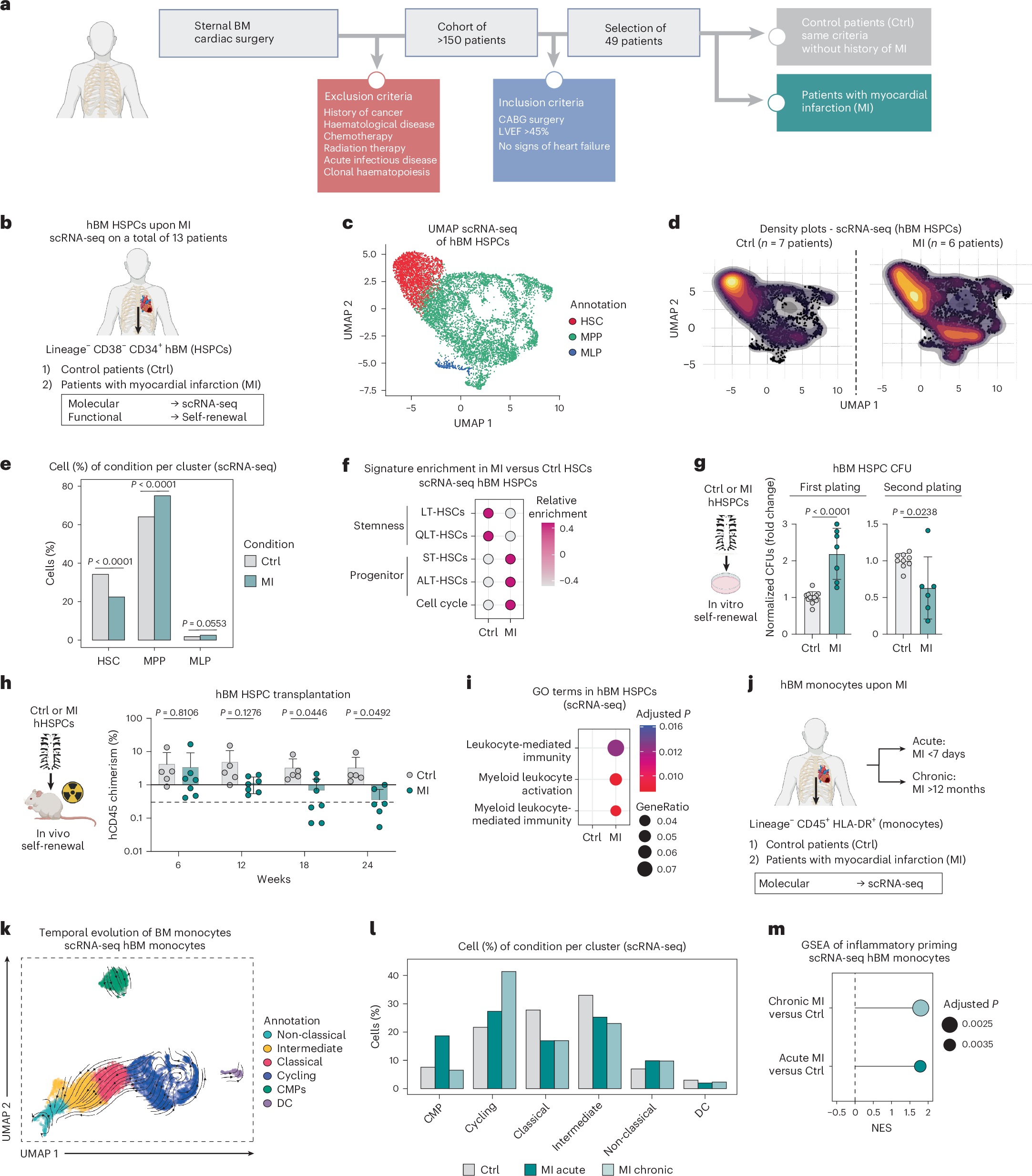2025-04-02 マックス・プランク研究所
<関連情報>
- https://www.mpg.de/24425169/healing-a-broken-heart-with-blood-stem-cells
- https://www.nature.com/articles/s41556-025-01639-4
心筋梗塞後の治療戦略としての骨髄造血幹細胞活性の調節:前臨床研究 Modulation of bone marrow haematopoietic stem cell activity as a therapeutic strategy after myocardial infarction: a preclinical study
Jasmin Rettkowski,Mari Carmen Romero-Mulero,Indranil Singh,Carolin Wadle,Jan Wrobel,Diana Chiang,Natalie Hoppe,Julian Mess,Katharina Schönberger,Maria-Eleni Lalioti,Karin Jäcklein,Beatriz SilvaRego,Timon Bühler,Noémie Karabacz,Mirijam Egg,Helen Demollin,Nadine Obier,Yu Wei Zhang,Claus Jülicher,Anne Hetkamp,Martin Czerny,Michael-Jason Jones,Hana Seung,Ritika Jain,… Nina Cabezas-Wallscheid
Nature Cell Biology Published:02 April 2025
DOI:https://doi.org/10.1038/s41556-025-01639-4

Abstract
Myocardial infarction (MI) is a major global health concern. Although myeloid cells are crucial for tissue repair in emergency haematopoiesis after MI, excessive myelopoiesis can exacerbate scarring and impair cardiac function. Bone marrow (BM) haematopoietic stem cells (HSCs) have the unique capability to replenish the haematopoietic system, but their role in emergency haematopoiesis after MI has not yet been established. Here we collected human sternal BM samples from over 150 cardiac surgery patients, selecting 49 with preserved cardiac function. We show that MI causes detrimental transcriptional and functional changes in human BM HSCs. Lineage tracing experiments suggest that HSCs are contributors of pro-inflammatory myeloid cells infiltrating cardiac tissue after MI. Therapeutically, enforcing HSC quiescence with the vitamin A metabolite 4-oxo-retinoic acid dampens inflammatory myelopoiesis, thereby modulating tissue remodelling and preserving long-term cardiac function after MI.


